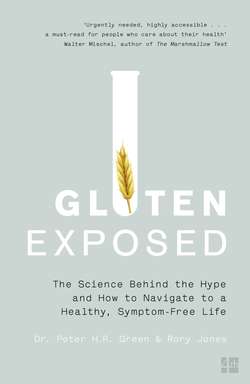Читать книгу Gluten Exposed: The Science Behind the Hype and How to Navigate to a Healthy, Symptom-free Life - Rory Jones, Dr. Green Peter - Страница 25
Probiotic Intoxication
ОглавлениеWe think, each of us, that we’re much more rational than we are. And we think that we make our decisions because we have good reasons to make them. Even when it’s the other way around. We believe in the reasons, because we’ve already made the decision.
—DANIEL KAHNEMAN, PSYCHOLOGIST AND BEHAVIORAL ECONOMIST, NOBEL LAUREATE
Probiotic is the term currently used to name the live bacteria/microorganisms taken by people to supposedly correct and/or maintain the natural balance of their gut and microbiome. This raises the question of what is a “natural” and “healthy” balance of microbiota—proportions that science has not yet been able to determine.
The balance of different bacteria varies from person to person, as well as culture to culture, depending on eating habits, genes, and environment. And while we know that a diverse microbiome is desirable, not everyone needs “rebalancing” to stay healthy.
A recent study of a tribe of hunter-gatherers in Africa, the Hadza people of Tanzania, showed that they lacked Bifidobacterium, a bacterium that is found in probiotic foods and considered healthy. They also had other bacteria that are considered a sign of disease in Western populations.
The study underscores the need to redefine what is healthy and unhealthy in our microbiota and how different bacteria interact with each other. And more important, that a far more personalized approach to probiotics is needed if they are to be effectively utilized to treat human health.
Manipulating the gut microbiota may prove to be an effective way to control the development of diseases and influence treatment. While the benefits of probiotics are being actively studied, it is still scientifically unclear whether they work for specific diseases. You are consuming live bacteria with the assumption that it is a “good” versus “bad” bacteria. For those taking probiotics during antibiotic therapy, how do you know that the antibiotic is not killing the probiotic you are taking or interfering with its action? Probiotics are regulated as a food, not a drug. Which means that they are largely unregulated. They need to be reported to your doctor along with any pharmaceuticals that you are taking.
More important, the safety of their use by young children, older adults, and anyone with a compromised or weak immune system is unclear and potentially dangerous.
While many people have had symptomatic relief through the use of probiotics, the health claims related to these products are often questionable and derived from animal studies that may not translate to humans, as well as studies of different types of bacteria (e.g., lactobacilli and bifidobacteria) that have huge differences within each species. For example, there are 170 species of Lactobacillus, one of the most widely advertised and available probiotic bacterium. All are part of the normal gastrointestinal and vaginal flora and are used in a variety of commercial products. Yet only some strains have been tested; others lack any real data.
While probiotics are being tested in the treatment of many different medical conditions (allergies, obesity, liver disease, IBS, diarrhea caused by antibiotics, and stomach ulcers, to name a few), it is still too early to know if they are truly effective or safe for these conditions, though studies in irritable bowel syndrome look promising.
